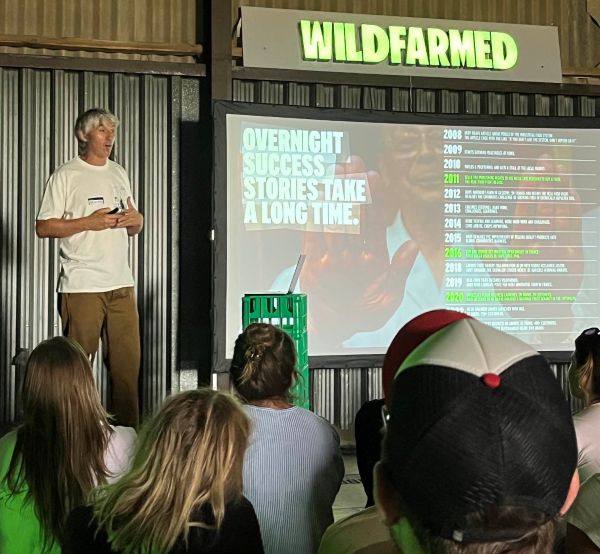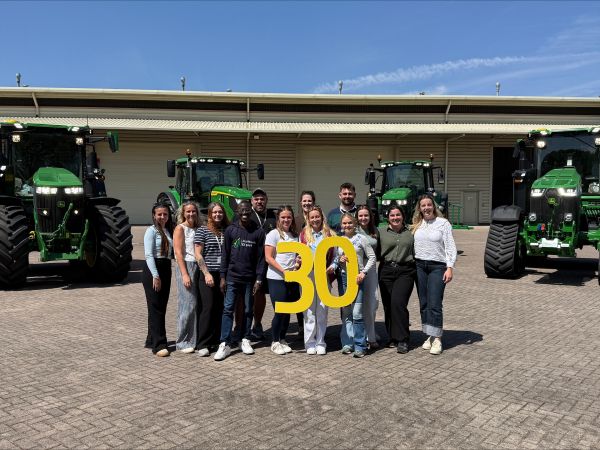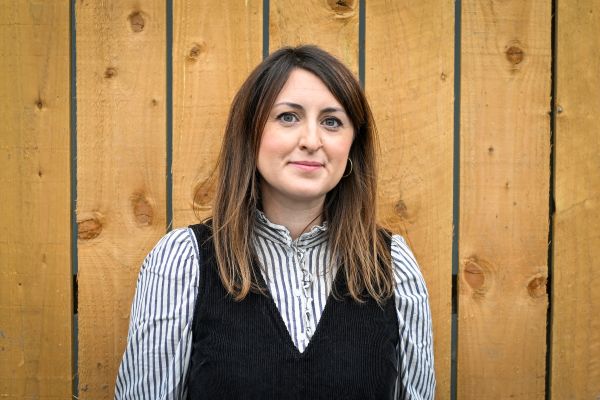
My journey so far with the Tesco Future Farmers Foundation - Ali Parker
Written by Ali Parker
At the end of 2019 I was awarded one of 50 places on the fifth intake of the Tesco Future Farmers Foundation Programme. With over 500 applicants, I was delighted to secure one of the sought-after slots.
For those of you who aren't familiar with the programme. Each year, Tesco selects ambitious young farmers across the UK and Ireland who want to develop their careers in farming and aquaculture. As the UK's largest retailer, Tesco's comprehensive stakeholder network packs the programme with workshops and talks from industry professionals covering all aspects of the supply chain. There are four elements to the programme:
1. Workshops to facilitate advancing skills and leadership development:
The programme comprises five two-day workshops. Experts lead these workshops, covering topics such as leadership development, marketing, finance, communications skills and business planning.
Starting the year-long programme in January 2020, we had a great first workshop. This session focused on personal achievements and reaching goals, as well as developing leadership skills - especially when dealing with tricky characters. Tesco aims to develop future leaders in the sector. Understanding how to reach your full potential puts you in a much better position to help your team.
Tesco has brilliant connections with Defra. More recently, seven of us had a session with MP Victoria Prentis, Parliamentary Under-Secretary of State for Farming, Fisheries and Food. We had the chance to ask questions and voice concerns. Learning to approach senior MPs in a persuasive yet diplomatic way will significantly help my career going forwards.
2. Supply chain trips:
Throughout the year, Tesco organises trips to meet business leaders from across their supply chain, including Muller, ABP, Avara and Kepak.
The supply chain trips are a programme highlight because you get a behind-the-scenes insights. I've visited Muller so far, where we had presentations from their senior leadership team. We covered everything from marketing products, to their next strategic business decisions. Not to mention the factory tour and supply of yoghurt to take home.
Working in the agri-PR sector, it's fantastic to hear from these leading businesses and understand how they work with the rest of their supply chain. Ensuring communication spans from farm to fork supported my ability to connect the dots.

3. Mentorship
Each applicant on the programme is assigned a senior, experienced individual from the world of food and farming to help develop personally in a confidential environment.
I have a personal interest in aquaculture, so my mentor is the Aquaculture Manager at Tesco. Our off-the-record monthly catchups allow me to ask any questions and gain knowledge in this area. It's been immensely fascinating so far!
4. Training in all aspects of agriculture:
The foundation also provides access to an additional training fund of £10,000 for further study to help develop farming careers.
Unfortunately, Covid-19 made getting together pretty impossible. For a programme focused on networking and building relationships, this was challenging. Tesco adapted to these circumstances by providing as many online webinars as possible, from organisations such as AHDB to Alltech.
Although we've hit the pause button on the programme until restrictions are relaxed, I have no doubt the skills I've learnt so far have helped both my knowledge of the sector and ability to lead teams and drive campaigns.
I've recently been promoted to account manager at Pinstone, and insights from the programme and the cohort of young farmers on the initiative is a great way to constantly be thinking of fresh ideas!
Hopefully by autumn we will be completing our remaining workshops and attending our supply chain trips. I look forward to updating you all once the programme's finished!

More recent insights

Regenerative farming, outcomes, and the power of brand

Cultivating journalism skills at John Deere with the Guild of Agricultural Journalists

How useful is AI in agri communications and PR?

Sign up to our newsletter
Keep your finger on the pulse.